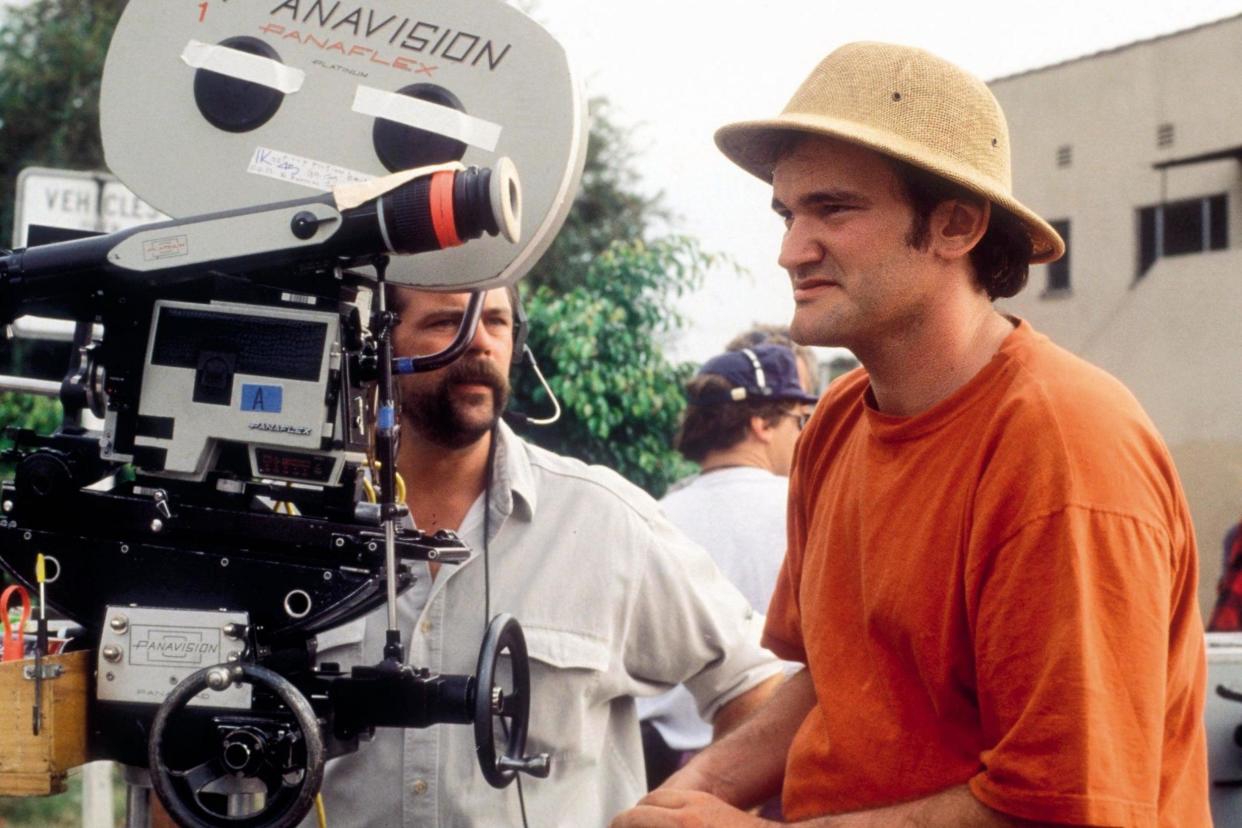Lights, camera, literary traction: the best books that take you behind the scenes of your favourite films

Even if you’ve never seen a single frame of the sublimely trashy oeuvre of director John Waters, his Mr Know-It-All (Corsair, £20) is this year’s standout film autobiography. Ignoring his cult early work it dives straight into his brief flirtation with bankability in Polyester, Serial Mom, and Hairspray before morphing into a guide to life covering everything from architecture to gay sex to intoxicants. “I never was a drug addict but I certainly WAS a drug enthusiast,” is one of the many zingers you can almost hear issuing from his Baltimorean, pencil-moustached mouth. He uses a Maybelline eyeliner pencil to draw the ’tache on, by the way.
The second memoir from Julie Andrews, Home Work (W&N, £20) covers her Hollywood years from Mary Poppins in 1964 to Victor/Victoria in 1982. It’s less louche than Waters’s romp, although the great dame has suffered her fair share of hardship. Ever the trouper, she details the loss of her parents, the dark depressions to which her second husband Blake Edwards was prone, and the time she was set on fire during a movie, all with the same spit-spot briskness. Horribly, more tragedy is to come in the third volume: Edwards’s death and the loss of her singing voice.
Garry O’Connor’s Ian McKellen (W&N £19.99) provides a thoroughly serviceable account of the actor’s life and career, from early stage roles to late-onset movie stardom in X-Men and Lord Of The Rings, paying due tribute to his campaigning on gay issues. It helps that he knows McKellen: the two were part of the Cambridge generation that has basically run British theatre from the Sixties onwards. It’s far from a hagiography, although rather more attention and praise is lavished on the subject’s genitalia (revealed when he first played Lear, for the RSC in 2007) than is customary in such books.
As can be deduced from the title, Queen Meryl (Hachette, £19) is never less than adoring of la Streep, who as the pre-eminent film actress of the last 40 years surely deserves more considered attention. “Like a shot of espresso, Sophie’s Choice invigorated Meryl,” is a line fairly emblematic of Erin Carlson’s crass, fangirling prose.
Ian Nathan’s handsomely packaged Quentin Tarantino: The Iconic Filmmaker and His Work (White Lion, £25) brandishes its “unofficial and unauthorised” label like a proud flag. But there’s very little in this admiring look at his work to upset the man we now consider an éminence terrible, except a discussion of his dreadful acting. Fun fact: for years QT used his first stepfather’s surname, Zastoupil: his mum belatedly gave him the middle name Jerome because she liked the idea of a ‘QJZ’ monogram.
Speaking of names, a quick nod to Anthony Daniels, whose I Am C-3PO (Dorling Kindersley, £19) is surely a sci-fi star’s nod to Leonard Nimoy’s autobiography I Am Not Spock and it’s contradictory sequel, I Am Spock.
Richard Snow’s Disney’s Land: Walt Disney And The Invention Of The Amusement Park That Changed The World (Simon and Schuster, £20) is an exhaustive account of Walt’s struggle to build the giant tourist spot. If you want to know about land tax levels in Fifties California, lucky you: it’s all here. Actually, it’s a pleasure to immerse oneself in this level of detail. Plumbing restrictions initially meant Disney had to choose between installing toilets or water fountains. And the theme park was by no means a surefire hit: a developmental money pit, it almost endangered his company.
Show People (Reaktion Books, £25), by academic Michael Newton, examines how film stars shaped the medium, rather than vice versa. In fact, it’s a collection of essays on individual actors, from Mary Pickford and Charlie Chaplin to Scarlett Johansson, sometimes focusing on a single film, sometimes on whole careers, and sometimes just on gossip. It’s a spotty read but did make me want to seek out some of the oddities and forgotten classics he mentions.
On to the coffee table books. Joe Alves: Designing Jaws (Titan, £30) by Dennis Prince is hamstrung by the fact that, beyond the shack and boat belonging to Robert Shaw’s Quint, Alves’s main contribution to Spielberg’s film was the notoriously unconvincing shark, dubbed “Bruce”. The Making of Alien (Titan, £45), written by J W Rinzler to mark the film’s 40th anniversary, is a far superior treat for fans. It’s big and plush and packed with detail and archive material on the evolution of the film’s story and design.
Publisher Taschen has a trio of softback books on Stanley Kubrick’s A Clockwork Orange, Barry Lyndon And 2001: A Space Odyssey, all at £30. The interviews, critical essays and backstage shots are excellent, and the inclusion of a poster and a remastered DVD feels agreeably retro. Also from Taschen is the gorgeous if somewhat niche-appeal The Definitive Jacques Tati, five boxed volumes produced through unprecedented access to the French humorist’s archive. The basic version costs £185, but if you love someone who loves Tati, there’s a limited edition for £785.

 Yahoo News
Yahoo News 
